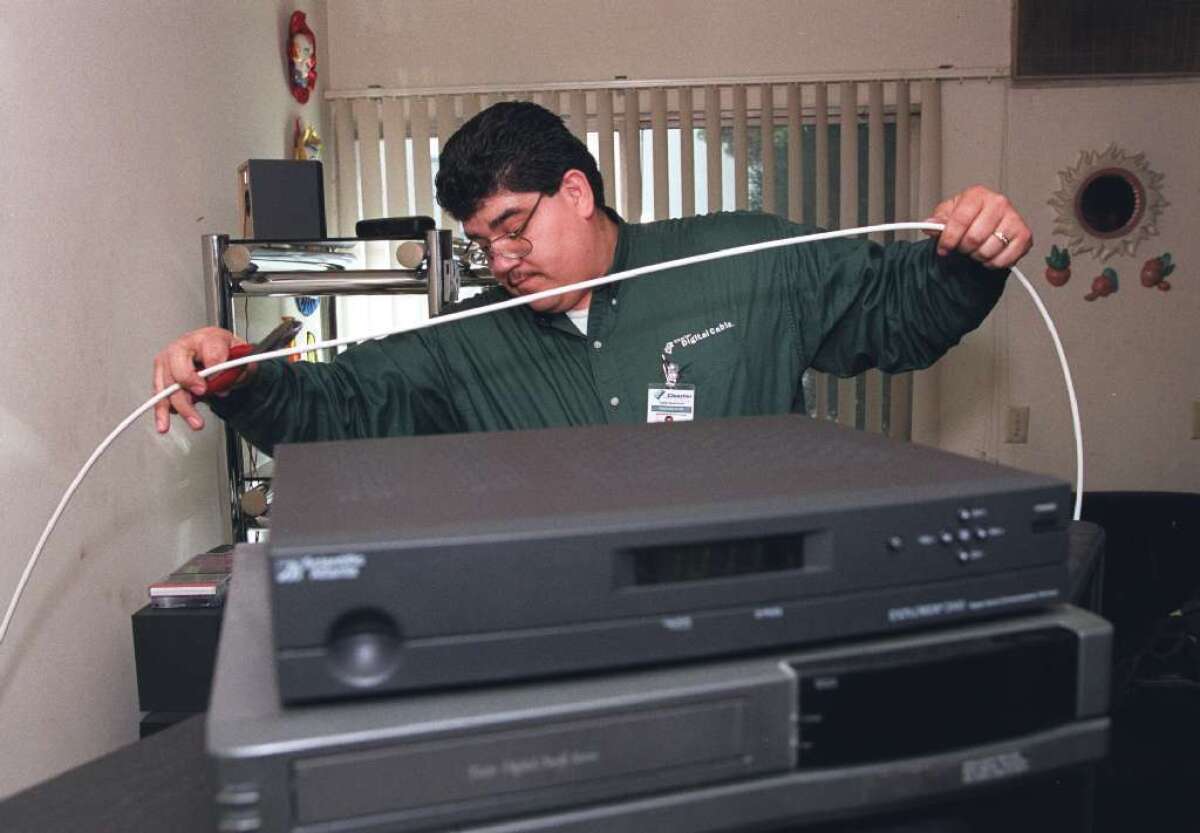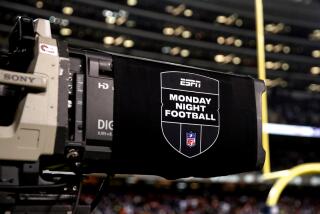Cord-cutting: Is your local cable TV provider really in trouble now?

Are local cable TV operators riding off into the sunset? Some folks think so -- and they have some new stats to back up their point.
This week a pair of industry analysts claimed that the U.S. pay-TV business, once considered a veritable license to print money, just suffered its worst 12-month period in history, as The Times’ Meg James reported.
Cable operators lost nearly 700,000 subscribers during the third quarter of 2013 (Time Warner Cable, suffering from a programming fee battle with CBS, accounted for 300,000 lost subscribers alone). While satellite and phone companies gained new customers, it wasn’t enough to offset the cable companies’ losses.
“The pay-TV industry has reported its worst 12-month stretch ever,” Craig Moffett and Michael Nathanson wrote.
This is quite a comedown for the local operators, whose business model was once the envy of executives in other industries. Cable companies won exclusive licenses from local government officials to provide programming for a certain area. Compared with broadcasters, regulation was minimal. When programmers hiked fees, cable operators simply passed the increases on to customers -- who, after all, had nowhere else to turn.
Now, of course, customers have plenty of other places to go, starting with their tablets and smartphones. These are the “cord-cutters” who have so shaken industry executives. And critics who have accused the operators of gouging ordinary customers can’t resist gloating.
“Maybe it’s the years of raising prices along with poor customer service that are finally spelling doom to these money grubbing monopolies,” one commenter wrote on a Times message board this week.
But wait. The story might be a bit more complicated, according to a piece published Wednesday on The Atlantic Wire.
PHOTOS: Behind the scenes of movies and TV
“The biggest threat to pay-TV isn’t the Internet, it’s the economy,” writes Derek Thompson. He argues that cable growth is tied to the number of households where operators plant one of their set-top boxes. Because of the crummy economy, he continues, the pace of household formation is one-third what it normally is in the U.S. That’s presumably because young people just don’t have the means to go out on their own and are living with their parents or roommates much longer than they normally would.
That doesn’t mean that the clouds have lifted, though. Thompson notes that cable companies have increased the cost of “bundled” programming options to sums many strain to afford, with TV “charging its way toward becoming a luxury good.”
Yeow.
What do you think? Is this curtains for cable operators, or will they figure out a way to turn the trends in their favor? Have you cut the cord yet?
ALSO:
NBC orders pilot for a Maya Rudolph variety show
Lifetime picks up fashion show ‘Under the Gunn’ with Tim Gunn
CBS conducting ‘journalistic review’ of ’60 Minutes’ Benghazi report
More to Read
The complete guide to home viewing
Get Screen Gab for everything about the TV shows and streaming movies everyone’s talking about.
You may occasionally receive promotional content from the Los Angeles Times.







